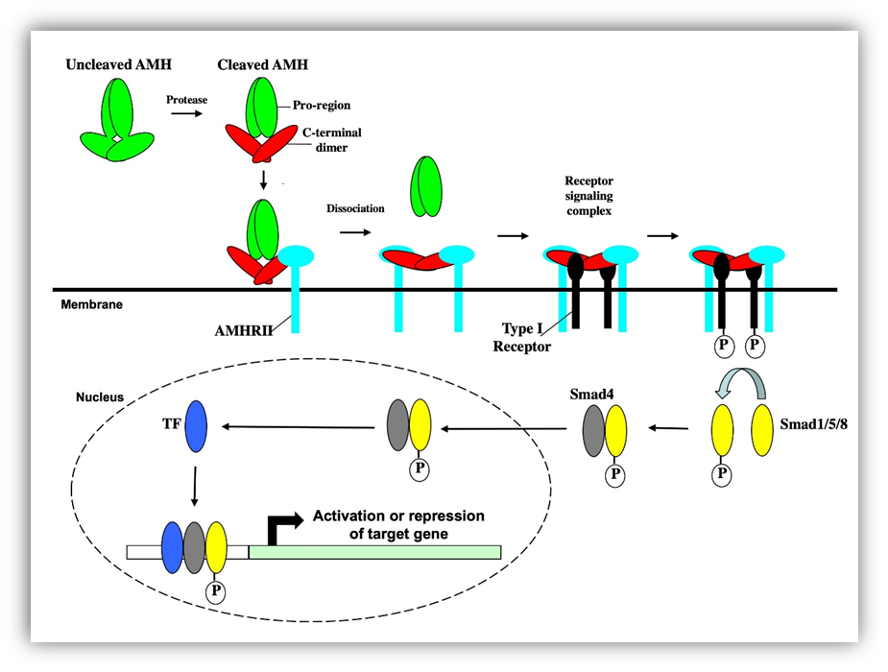
FIGURE 24. Model showing processing of AMH, assembly of the AMH receptor signaling complex, and intracellular signaling. Cleavage of the AMH precursor results in a conformational change in the C-terminal domain, which allows binding of the AMH non-covalent complex to AMRHII. After dissociation of the N terminal proregion, the type I receptor is recruited into the complex and phosphorylated by the type II receptor kinase. The activated type I receptor can then phosphorylate Smads 1/5/8, which associate with Smad 4, translocate to the nucleus and regulate AMH responsive genes. Courtesy of Dr. Richard Cate. Data obtained from ref. (396): di Clemente N, Jamin SP, Lugovskoy A, Carmillo P, Ehrenfels C, Picard J-Y, Whitty A, Josso N, Pepinsky RB, Cate RL. Processing of anti-Müllerian hormone regulates receptor activation by a mechanism distinct from TGF-β. Molecular Endocrinology 24:2193-2206 (2010). http://mend.endojournals.org/content/24/11/2193.abstract
